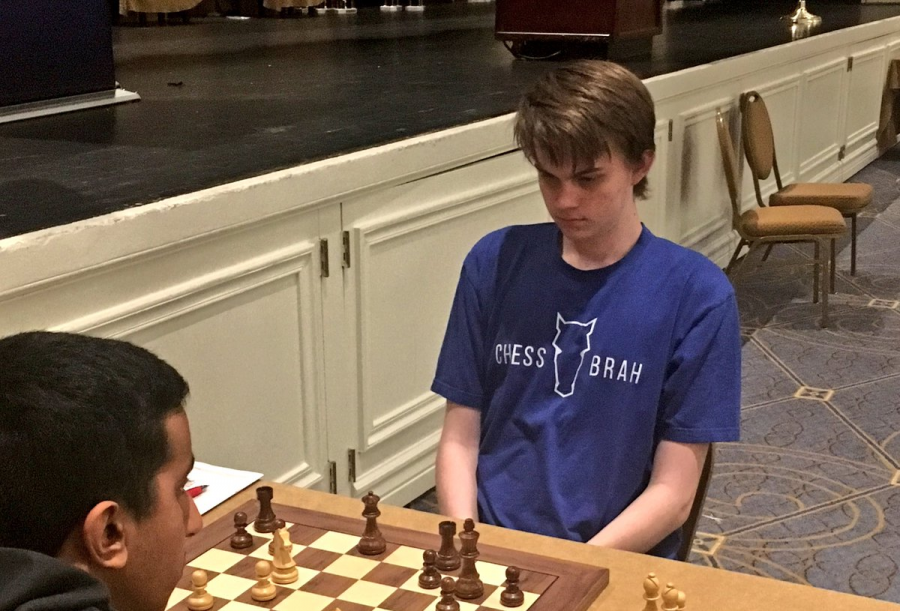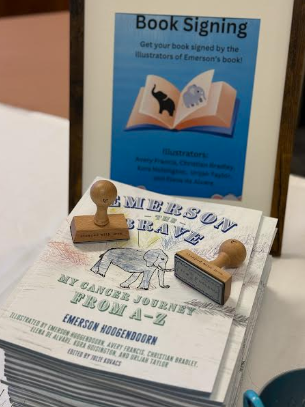On move 26 of his chess SuperNationals tournament game inside a lavish resort in Nashville, Tennessee, WO Sr. Joshua Posthuma had his opponent right where he wanted him. His competitor had just made a move to challenge Posthuma’s knight, which was seemingly a good move at the time. However, Posthuma already knew it was game over. What followed was a seven move onslaught ending in a final, defeating checkmate.
This was one of the several games Posthuma played at the SuperNationals VI elite chess tournament in May. It was the largest tournament for rated players of all time with 5,577 competitors ranging in age from kindergarten to adulthood. The tournament takes place every four years, so it draws much attention to it whenever it occurs.
Posthuma competed in the high school division of the competition, where most of the competitors were concentrated. The most prominent young talent in the nation all gathered to compete alongside and against Posthuma in this tournament.
To put the competition of this tournament in perspective, Posthuma is a National Master Certificate holder, meaning he has earned a competitive chess rating of above 2200. Of the hundreds of thousands registered competitive chess players, fewer than 1% of them hold this title or exceed it. Obviously, Posthuma is a master of the game. Even so, he was ranked below 21 other players in his respective age group.
For this reason, Posthuma was nervous during the matches. Even when Posthuma was predicted to win, he knew he couldn’t relax and lose focus, he still had to perform at a very high level to compete against the other nationally ranked opponents. “Every game was a challenge in that tournament. You can’t just assume that any match is going to be easy, everybody is challenging at that level.”
Not only was he nervous, but there were thousands of people attending the tournament, creating a crowded and distracting play area. “It’s a really big tournament and there was a lot on the line….It’s intimidating when you go into the playing hall and see over 6000 people” Posthuma said. “It’s very crowded with players and parents of players constantly moving around. To get to the tournament room for your next pairing, it can take five minutes just trying to get through the crowds; it’s really insane.”
All of the competition, stakes, and massive crowds were affecting Posthuma greatly. Distractions were plentiful and he felt anxious playing against such talented players.
But, due to his vast experience in chess tournaments, he knew he could calm himself down and focus. “I’ve gone to so many tournaments at this point, I can do a pretty good job of containing myself and controlling my nerves,” Posthuma said.
The tournament was seven games long spread out over three days of competition. This may seem like a lot of time for just seven games, but there’s a tremendous amount of time dedicated each day for just the two or three matches. Each person is given a total of two hours to try to defeat their opponent. This means each game can last up to four hours, and many of them do. “There were a lot of very close games that went right down to the wire. A lot of times we would get down to just under a minute on each of our clocks.”
So, players were expected to play for up to 12 hours in a single day. With the substantial amount of concentration and attention required for even a single chess game at this level, playing for 12 hours can be mentally exhausting.
One of these games was on one of the top brackets against a higher ranked (International Master) IM Kesav Viswanadha. The game was played on a high-tech chess board with sensors that broadcast each move to a live stream online. It was a high pressure, but memorable experience for Posthuma. “I was doing really well. I sacrificed two pawns and before that his king was in a bit of trouble. Unfortunately, I didn’t end up winning that game. He ended up getting back both pawns and winning from there. But it was a really interesting game,” Posthuma said.
Overall, Posthuma ended up winning five out of the seven games he played and finished 22nd overall. For a national tournament in such a popular and competitive sport, this is an outstanding accomplishment. Yet, Posthuma doesn’t think of it that way.
Posthuma beat all those ranked below him and lost only to those ranked above him. But apparently, doing predictably isn’t good enough for Posthuma. “I’m usually a bit bummed out if I do just as well as I’m expected to; I always want to do better than I’m supposed to,” Posthuma said.
Undoubtedly, this attitude combined with Posthuma’s work ethic has made him into the phenomenal player he is today. Ranking among the nation’s elite, Posthuma is already a well-accomplished and successful chess master, and with his constant drive for improvement, the potential for the local chess genius is limitless.







